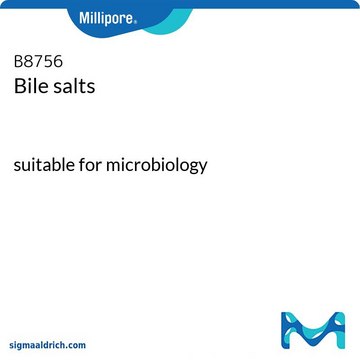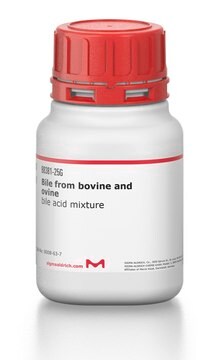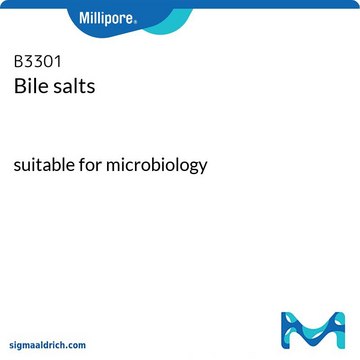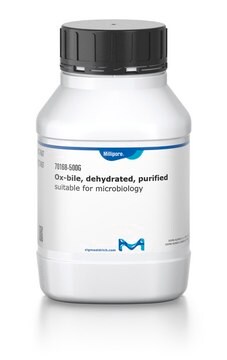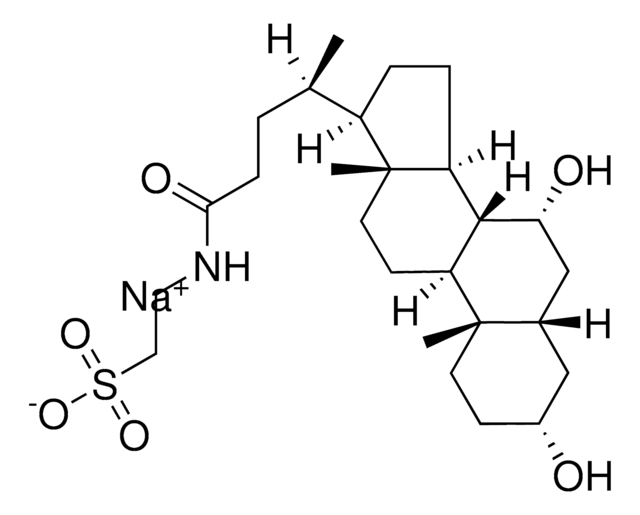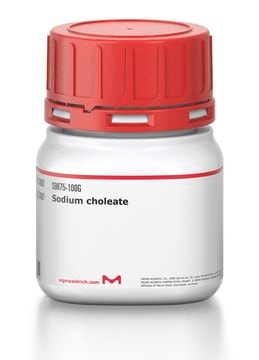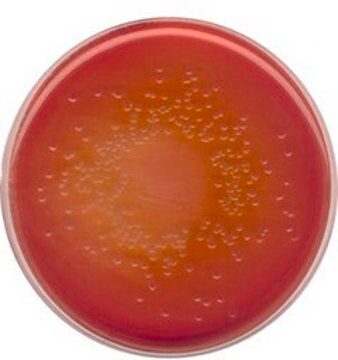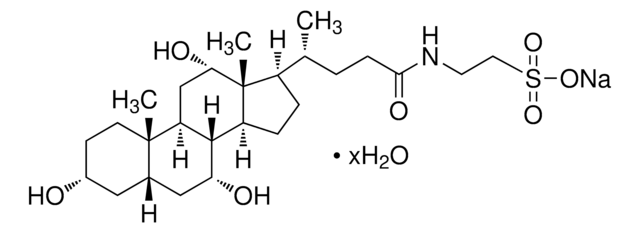B3426
Bile salts mixture
suitable for microbiology
Synonyme(s) :
Bile acids sodium salt, cholic acid-deoxycholic acid sodium salt mixture
About This Item
Produits recommandés
Stérilité
non-sterile
Niveau de qualité
Forme
powder
Conditionnement
pkg of 100 g
Perte
≤6% loss on drying
Couleur
yellow to brownish-yellow
pH
7±0.5
Solubilité
distilled water: freely soluble
Application(s)
microbiology
Température de stockage
10-30°C
Description générale
Application
Notes préparatoires
Mentions de danger
Conseils de prudence
Classification des risques
Aquatic Chronic 3
Code de la classe de stockage
11 - Combustible Solids
Classe de danger pour l'eau (WGK)
WGK 2
Point d'éclair (°F)
Not applicable
Point d'éclair (°C)
Not applicable
Faites votre choix parmi les versions les plus récentes :
Déjà en possession de ce produit ?
Retrouvez la documentation relative aux produits que vous avez récemment achetés dans la Bibliothèque de documents.
Les clients ont également consulté
Articles
Today, diverse studies report the benefits of probiotics, such as inhibitory effects on pathogens, aid in the management or prevention of chronic intestinal inflammatory diseases or atopic syndromes, and support to the immune system. Potential beneficial applications abound, researchers continue to evaluate the effictiveness and clarify the mechanisms of action of probiotics.
Notre équipe de scientifiques dispose d'une expérience dans tous les secteurs de la recherche, notamment en sciences de la vie, science des matériaux, synthèse chimique, chromatographie, analyse et dans de nombreux autres domaines..
Contacter notre Service technique